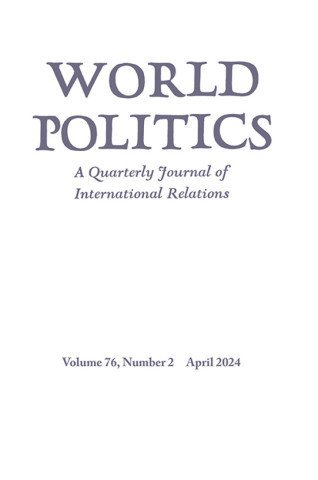动员运动与农村发展
IF 2.5
1区 社会学
Q1 INTERNATIONAL RELATIONS
引用次数: 3
摘要
摘要大多数关于东亚经济增长的报道都集中在发展国家在成功工业化中的作用上。本文通过表明农村政策不同于产业政策来扩展和挑战这一框架。一个关键的发现是,一个多世纪以来,东亚国家一直依靠群众动员运动,而不是技术官僚的规划和符合市场的机构来实现农村发展。通过对日本、韩国、台湾和中国的个案研究,作者认为三个主要因素解释了运动国家的崛起:革命传统、乡村民粹主义和政策学习。对结果的简要评估说明了活动的收益和成本,以及推动这些活动的实际考虑因素。作者的分析为东亚模式提供了一个新的视角,并反驳了人们普遍认为的运动是社会控制中的悲剧行为的观点,相反,这表明运动是该地区农村转型的核心。本文章由计算机程序翻译,如有差异,请以英文原文为准。
Mobilization Campaigns and Rural Development
ABSTRACT Most accounts of East Asian economic growth have focused on the role of developmental states in successful industrialization. This article expands and challenges that framework by showing that rural policy was different from industrial policy. A key finding is that for more than a century, East Asian states have relied on mass mobilization campaigns rather than on technocratic planning and market-conforming institutions to achieve rural development. Based on case studies of Japan, South Korea, Taiwan, and China, the author argues that three main factors explain the rise of campaign states: revolutionary traditions, rural populism, and policy learning. A brief assessment of outcomes illustrates the payoffs and costs of campaigns and the practical considerations that drive them. The author’s analysis offers a new perspective on the East Asian model and disputes the widely held view that campaigns are tragic exercises in social control, demonstrating instead that they were central to the region’s rural transformation.
求助全文
通过发布文献求助,成功后即可免费获取论文全文。
去求助
来源期刊

World Politics
Multiple-
CiteScore
8.40
自引率
0.00%
发文量
24
期刊介绍:
World Politics, founded in 1948, is an internationally renowned quarterly journal of political science published in both print and online versions. Open to contributions by scholars, World Politics invites submission of research articles that make theoretical and empirical contributions to the literature, review articles, and research notes bearing on problems in international relations and comparative politics. The journal does not publish articles on current affairs, policy pieces, or narratives of a journalistic nature. Articles submitted for consideration are unsolicited, except for review articles, which are usually commissioned. Published for the Princeton Institute for International and Regional Affairs
 求助内容:
求助内容: 应助结果提醒方式:
应助结果提醒方式:


